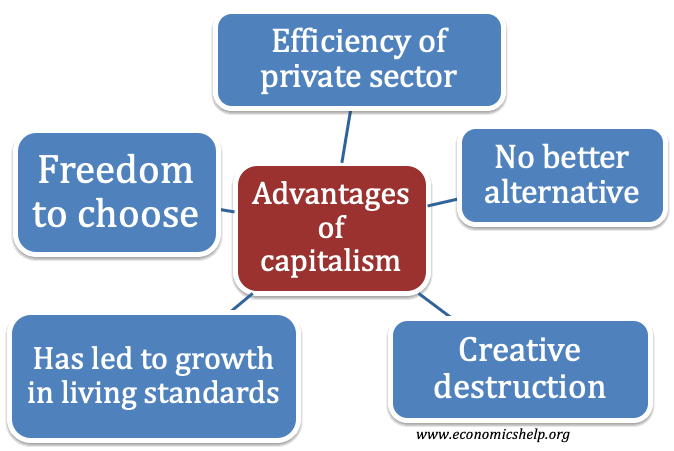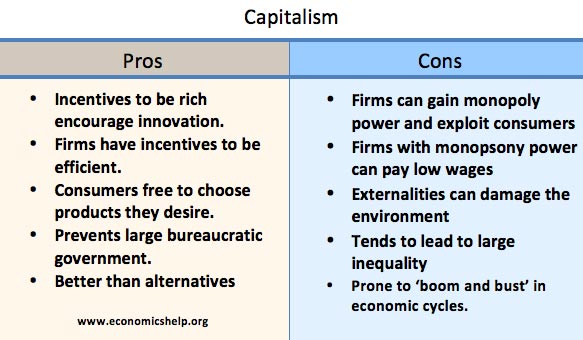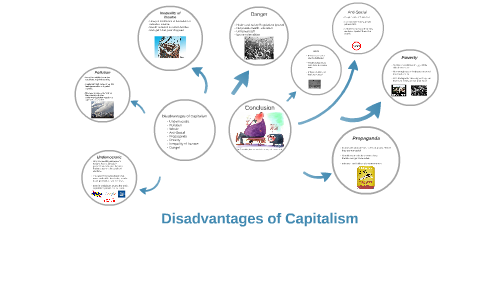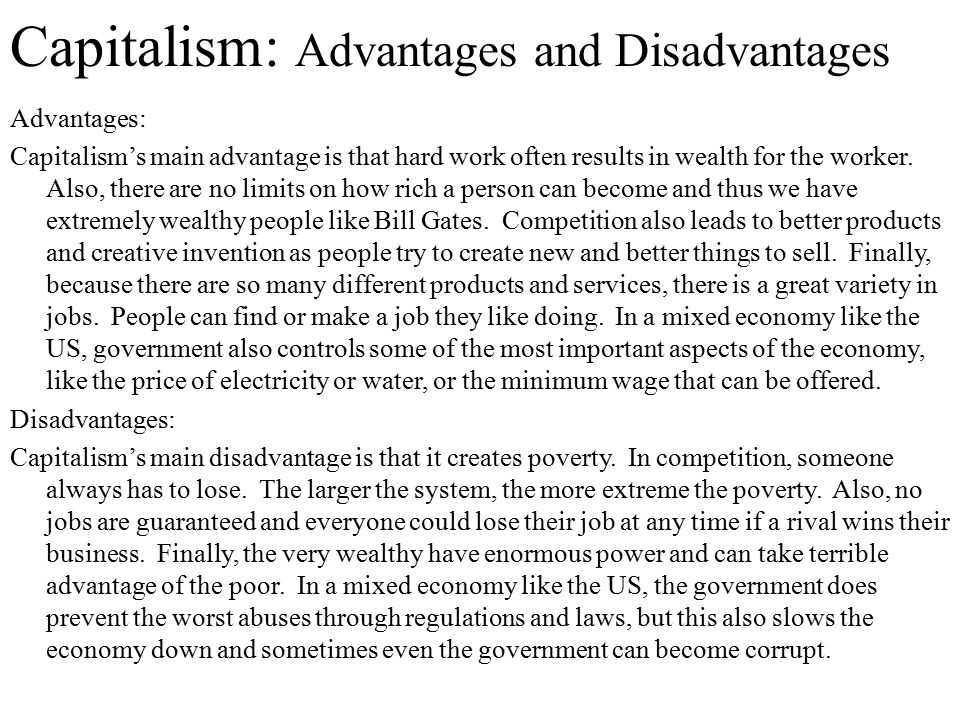Capitalism is an economic system in which private individuals, rather than the government, own and control the means of production and distribution of goods and services. This system is characterized by a competitive market, in which businesses compete with each other to sell their products and services at the highest price. Under capitalism, the goal of a business is to make a profit, and individuals are free to start and run their own businesses.
One of the main advantages of capitalism is that it allows for economic growth and innovation. Because businesses are motivated by profit, they are incentivized to come up with new and better products and services. This competition can lead to the development of new technologies and ideas, which can improve people's lives and create new job opportunities.
Capitalism also allows for individual freedom and choice. Consumers are free to choose what they want to buy, and businesses are free to decide what they want to sell. This freedom of choice can lead to a wide range of products and services being available to consumers, which can increase their standard of living.
However, capitalism also has its disadvantages. One of the main criticisms of capitalism is that it can lead to income inequality. Because businesses are motivated by profit, they may prioritize the needs of their shareholders over the needs of their employees or the general public. This can lead to a concentration of wealth in the hands of a few, while many people struggle to make ends meet.
Another disadvantage of capitalism is that it can be unstable. Because businesses are driven by competition, they can go bankrupt if they are unable to keep up with their rivals. This can lead to job losses and economic instability, which can be especially harmful to lower-income individuals who may not have the resources to weather such economic downturns.
In addition, capitalism can lead to environmental degradation. Because businesses are focused on maximizing profits, they may prioritize short-term gains over long-term sustainability. This can lead to the exploitation of natural resources and the pollution of the environment.
Overall, capitalism has both advantages and disadvantages. While it can lead to economic growth and innovation, it can also create income inequality and instability, and may have negative impacts on the environment. It is important for governments to carefully consider these trade-offs and to implement policies that can mitigate some of the negative impacts of capitalism while still allowing for economic growth.
Advantages And Disadvantages Of Capitalism

A capitalist is an individual who is typically wealthy and has a large amount of capital investment, which includes the money and financial investments. Additionally, lower tax rates also imply fewer market distortions since market forces can work in a more efficient manner. Furthermore, the state-owned corporations have fewer incentives to initiate innovative working practices. The rewards are not always monetary. Advantages and Disadvantages of Capitalism: Capitalism is one of the most practiced economic and political systems in the world today. Limited government intervention: In a capitalistic society, the government has a smaller role. Even in democratic capitalist countries like the US, where they jail corrupt government officials and economic criminals, soft regulations on capitalism allowed the money markets to bubble, resulting in a financial crisis that is now reverberating all over the planets.
Advantages and Disadvantages of Capitalism

Although the rich do tend to get richer and the poor tend to stay poor, everyone within a society focused on Capitalism does have an initial opportunity to find success. From voting to serving on local boards to running for a national office, people get involved with government so they can create their preferred outcome. These investments came through taxpayer dollars. It is a society that is based on the service of others. That is how capitalism naturally provides opportunities to choose what items a consumer believes they need to solve any problem in the best possible way. They always remained poor farmers. Capitalism, by contrast, results in a sort of reality-forced altruism: I may not want to help you, I may dislike you, but if I don't give you a product or service you want, I will starve.
What are the positive effects of capitalism?
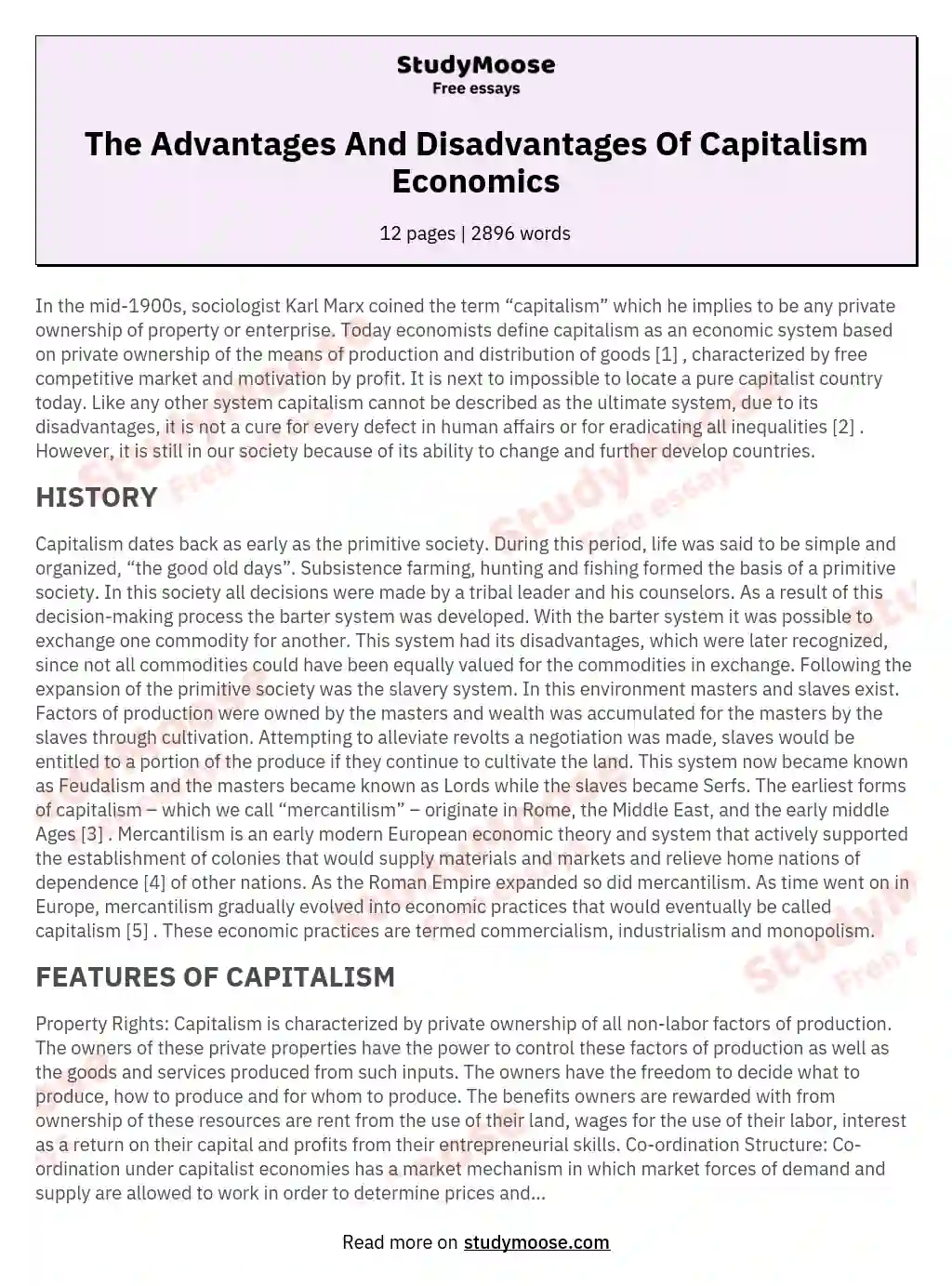
Higher property prices Not only rents tend to increase in capitalist regimes, also property prices may be quite high as well. No matter what your current economic status is, there is always an opportunity to pursue dreams. Is a pastor more valuable than an assembly line worker? Although private firms play an important role in supply and demand, the state influences critical sectors of the economy, e. If an individual is unable to be productive for some reason, then they are discarded to the backburners of society. However, capitalism tends to ignore the law of diminishing marginal utility of wealth because as wealth increases, people tend to get less happy and satisfied with what they are earning. By this, it gives freedom for to choose products from in a variety of market places as a consumer. People who find wealth work to keep their position by depressing others.
Capitalist Economy: Features, Advantages & Disadvantages
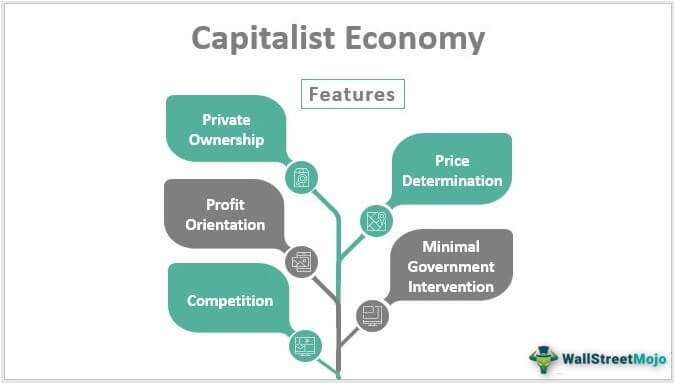
Within this type of society, each person is naturally provided with the opportunity to choose what they believe will meet their needs in the best possible way. These innovations allow for the developing world to continue improving conditions for local populations, which can eventually work toward ending hunger, water scarcity, and other potentially life-threatening conditions. One of the biggest advantages of capitalism is that everyone is offered the chance to find success in their own way. Capitalism must be regulated for it to be successful. There is no interference from the government. You are permitted to find your own job, create your own job, or not work at all, if that is what you prefer. You probably know that our economic system is called capitalism and that a competing economic system, communism, lost out to capitalism in a decades-long military, political and ideological ideas-based conflict known as the Cold War.

